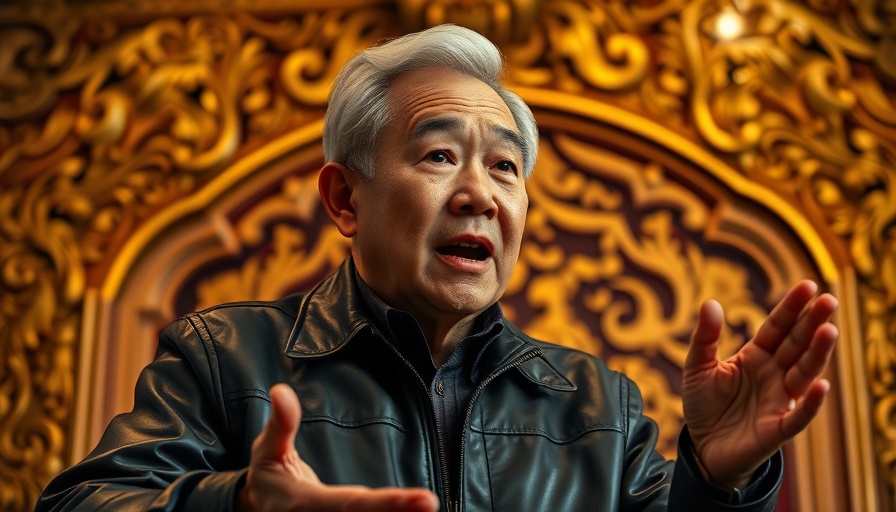
Nvidia's Battle in China: More than Just Sales
Nvidia is at a crucial juncture as it strives to maintain its foothold in China, a market that has become increasingly challenging due to rising tensions and regulatory barriers. While sales figures highlight the immediate stakes—Nvidia generated approximately $3.7 billion from the Chinese market in the last quarter—it is the broader implications on technology advancement and international relations that are at the core of Nvidia's current predicament.
Historical Context: The U.S.-China Trade Relations
The context of Nvidia's struggles can be traced back to the ongoing trade war between the United States and China. The U.S. government has imposed strict export controls, specifically targeting semiconductor technologies, citing security concerns. This has constrained Chinese tech companies' access to advanced chips, leading to a strategic push for self-sufficiency within the Chinese semiconductor industry, an initiative that poses a direct threat to Nvidia's operations.
The Strategic Shift: Encouragement for Local Production
Recent guidance from China's government advising local companies to refrain from purchasing Nvidia’s H20 series chips demonstrates a significant policy shift aimed at promoting domestic alternatives such as those from Huawei and Cambricon Technologies. This is not merely an economic maneuver but a calculated step to strengthen national capabilities in semiconductor manufacturing, ensuring China can adequately compete in AI technology development.
The Immediate Impact: Stock Fluctuations and Revenue Considerations
Nvidia's stock recently faced a decline following reports of China’s guidance. Although the company’s overall stock has more than doubled this year, the drop of 3.9% post-announcement signals investor concern over potential long-term revenue impacts, particularly if competition from local manufacturers escalates. Analysts remain cautiously optimistic, maintaining a Strong Buy rating on Nvidia, suggesting resilience amidst challenges.
Looking Ahead: The Technology Landscape
In navigating these challenges, Nvidia's primary asset remains its superior technology and established customer base, including giants like OpenAI and Google. Despite the rise of local competitors, many analysts believe that Chinese firms currently lag in technological capabilities compared to Nvidia, particularly in the realm of general-purpose GPUs. However, as China invests heavily in its domestic sector, the landscape may shift rapidly.
Actionable Insights: Strategies for Nvidia
Nvidia's sustained relevance in the market may hinge on its adaptability. The company has begun modifying its chip designs to comply with U.S. regulations while still serving the Chinese market. Long-term strategies may include deepening partnerships with Chinese tech firms and possibly investing in local manufacturing to mitigate the impact of government restrictions.
Confronting Misconceptions: Understanding the Broader Impact
There is a prevalent notion that Nvidia’s decline in China is only a financial issue. However, the ramifications extend to technological innovation and the global balance of power in AI. As countries navigate through these export restrictions and competitive regulations, understanding the interdependencies in global technology supply chains will be crucial for future strategies.
Conclusion: The Path Forward for Nvidia
As Nvidia stands at the crossroads of opportunity and adversity in China, it is clear that the stakes are far greater than mere sales figures. The company's ability to adapt to shifting regulatory landscapes, engage effectively with local markets, and innovate amidst competition will determine its future in the strategically vital Chinese market.
To stay informed about the latest developments in technology and AI, consider exploring our insights on market dynamics and investing opportunities.
 Add Row
Add Row  Add
Add 


Write A Comment